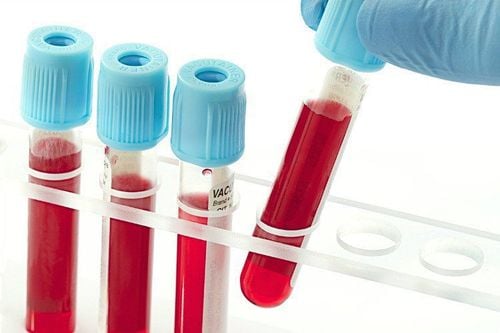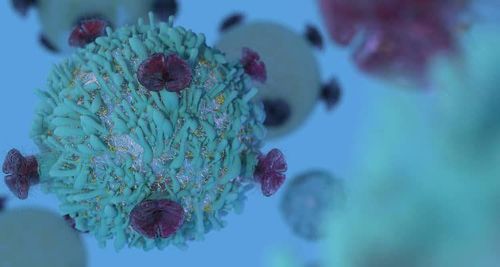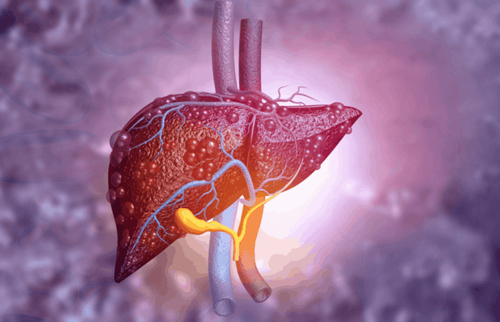This is an automatically translated article.
Primary biliary cirrhosis is an autoimmune disease characterized by the body turning against its own cells. The disease progresses slowly but can cause life-threatening complications.
1. What is primary biliary cirrhosis?
Primary biliary cirrhosis (also called primary biliary cirrhosis, autoimmune biliary cirrhosis) is a chronic disease of the liver, characterized by autoimmune destruction of the intrahepatic bile ducts. This destruction interferes with bile secretion. At the same time, hepatitis continues to occur, causing scars in the liver, gradually leading to cirrhosis. Cirrhosis is present only in the late stages of the disease.
Many patients with primary biliary cirrhosis have no symptoms and a definitive diagnosis is made only when there are abnormalities in blood tests and routine liver function tests. Others have jaundice, itching, fatigue, cholesterol accumulation in the skin, dark urine, fluid accumulation in the ankles and abdomen, dry eyes, dry mouth, arthritis, thyroid disease, ...

Xơ gan mật tự miễn được phát hiện khi có những bất thường trong xét nghiệm máu
Primary biliary cirrhosis progresses very slowly. Many patients are still living normal lives 10-15 years after being diagnosed with the disease. However, the disease can cause life-threatening complications, especially after cirrhosis develops. The dangerous complications of the disease include: portal hypertension, varicose veins, liver cancer, osteoporosis, memory problems, thyroid disease, rheumatoid arthritis,...
2. Mechanism of formation of primary biliary cirrhosis
Primary biliary cirrhosis is characterized by gradual destruction of the intrahepatic bile ducts as T lymphocytes begin to accumulate in the liver. T cells are white blood cells that normally protect the body against bacteria and fungi. However, in primary biliary cirrhosis, T cells infiltrate and destroy the cells lining the intrahepatic bile ducts. Bile (produced by the liver) plays an important role in the digestion of food, helping the body get rid of cholesterol, dead red blood cells and toxins. When the bile ducts are damaged by autoimmune biliary cirrhosis, harmful substances can accumulate in the liver, destroying liver cells. Destroyed liver cells are replaced by scar tissue, which contributes to cirrhosis. Cirrhosis is scarring of the liver tissue, causing the liver to gradually lose its vital functions.
Tế bào lympho T tích tụ trong gan lâu ngày dẫn đến xơ gan mật tiên phát
3. Causes of primary biliary cirrhosis
Currently, the cause of primary biliary cirrhosis is still not clear. Several factors have been assessed as potentially increasing the risk of autoimmune biliary cirrhosis, including:
Gender: The majority of cases of primary biliary cirrhosis are women; Age: The disease is common in people aged 30 - 60 years old; Family factors: People who have a family member with the disease will have a higher rate of primary biliary cirrhosis; Infection: Experts suspect the disease may be triggered by a bacteria, fungus or parasite (to explain why large numbers of white blood cells are present in the bile ducts in the liver. bridge). Up to now, primary biliary cirrhosis has not been clearly identified the cause of the disease. The disease has a slow progression and early treatment will slow the progression of the disease. Therefore, patients need to pay attention to periodic health check-ups to intervene early if suffering from this disease.

Xơ gan mật tiên phát chủ yếu xảy ra ở nữ giới
Currently, Vinmec International General Hospital has Hepatobiliary Screening packages, which help detect Hepatitis Virus at an early stage even when there are no symptoms. In addition, the comprehensive hepatobiliary screening package helps customers:
Assess the liver's ability to work through liver enzyme tests; Evaluation of bile function; vascular nutrition; Early screening for liver cancer; Perform tests such as Total blood cell analysis, blood clotting ability, screening for hepatitis B, C Assessment of hepatobiliary status through ultrasound images and diseases that have the potential to affect liver disease/cause liver disease. more severe liver disease In-depth analysis of parameters to evaluate hepatobiliary function through laboratory, subclinical; risks affecting the liver and early screening for hepatobiliary cancer To register for examination and treatment of hepatobiliary diseases at Vinmec International General Hospital, please make an appointment on the website for service.
Please dial HOTLINE for more information or register for an appointment HERE. Download MyVinmec app to make appointments faster and to manage your bookings easily.













